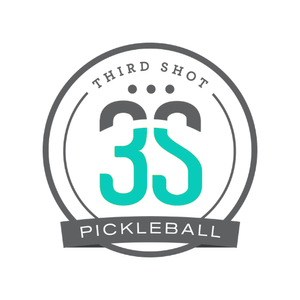As pickleball explodes in popularity, there are more and more people coaching. And while some (like yours truly) do so professionally, the majority of instructors teach on a part-time or voluntary basis.
Whether you're coaching to earn a living or helping grow the sport in your town, there are a few traps that you might want to avoid:
1) Being a Fault-Finder Instead of Success Seeker.While part of a coach's job is identifying problems, that isn't where it ends. Very little skill or expertise is needed to merely point out all the things someone is doing poorly.
I think that a coach ought to work hard to understand the strengths players possess and to make sure the players see these strengths in themselves. These positives can be them coupled with areas that need improving (e.g. "I've noticed that you do a good job volleying, but you are often late when coming to the net so yo can't use your volleys to full effect"; "you can play good, low dinks, but when you are poorly set up to hit them, that's when they go off the rails".
Being a success seeker isn't about making your students feel good. It is about contextualizing the skills you want them to develop and connecting them to things they already know how to do. And if they understand how these new skills fit into their overall game, they are much more likely to have the desire to learn what you are teaching them.
2) Too Much Talking. Mark Twain wrote: "Sorry to write such a long letter, I didn't have time to write a short one" and I think this sums up one of the challenges that instructors face: it is difficult to be precise, concise and thorough.
I spend a lot of time working with coaches and pretty much without fail they are incredibly passionate and eager to help. They draw from their own knowledge and experience in an effort to get other people to play better. The trouble is, sometimes this overflows and becomes them wanting to share everything they know.
Videos. Articles. Interviews. Challenges.
a 12 month subscription, sent out every 2 weeks.
The most effective coaches I know are the ones who a quick and to-the-point; they get in, they get out. The ones who are best at this identify a single teaching point, make the case for why it matters and then put their students into a situation to practice it. The downward spiral of never-ending information often starts with: "oh. and one more thing..." which inevitably leads to several more things. This takes more time, runs the risk of overwhelming the players, and can make the coach look like a know-it-all.
Coaching isn't the time to highlight your extensive knowledge of the sport -- it's not about you. Remember: concise, precise, thorough.
3) Disconnecting Tactics and Technique. What would you say if I asked you if a hammer was the right tool? You'd probably want to know what I was planning on using it for. The same logic should apply when we are teaching technique to our students. That is, technique is a tool we use to perform a task. These tasks (tactics) could include: making your opponents move; being consistent; buying yourself time; taking away time; exploiting a weakness, etc.. And while some elements of technique are good for certain tasks, they are inappropriate for others.
Unfortunately, many coaches believe that technique can or should be taught separate from tactics. The red flag for this kind of thinking is when someone says: "today we are going to work on the [insert stroke name here]." They then proceed to treat the stroke in isolation, as though if you just mastered the mechanics you'd be all set. While that may work well for sports synchronized swimming or figure skating, pickleball is very different. Pickleball is an open-skilled sport filled with variables and decision making. The other side of this coin is when "strategy clinics" are offered as though it can exist in a vacuum devoid of technique.
The fluid nature of PB means that it is vital to connect the technique being learned with the tactics being implemented (i.e. in what situation would I use this shot and how will it help me?). Instructors who fail to integrate tactics and technique are like people who insist that a hammer is the 'right' tool.
Mark Renneson is the founder and CEO of Third Shot Sports. He travels North America extensively working with pickleball players and coaches. If you like thinking and talking about coaching, you can join the Pickleball Instructor Forum that he runs here.

